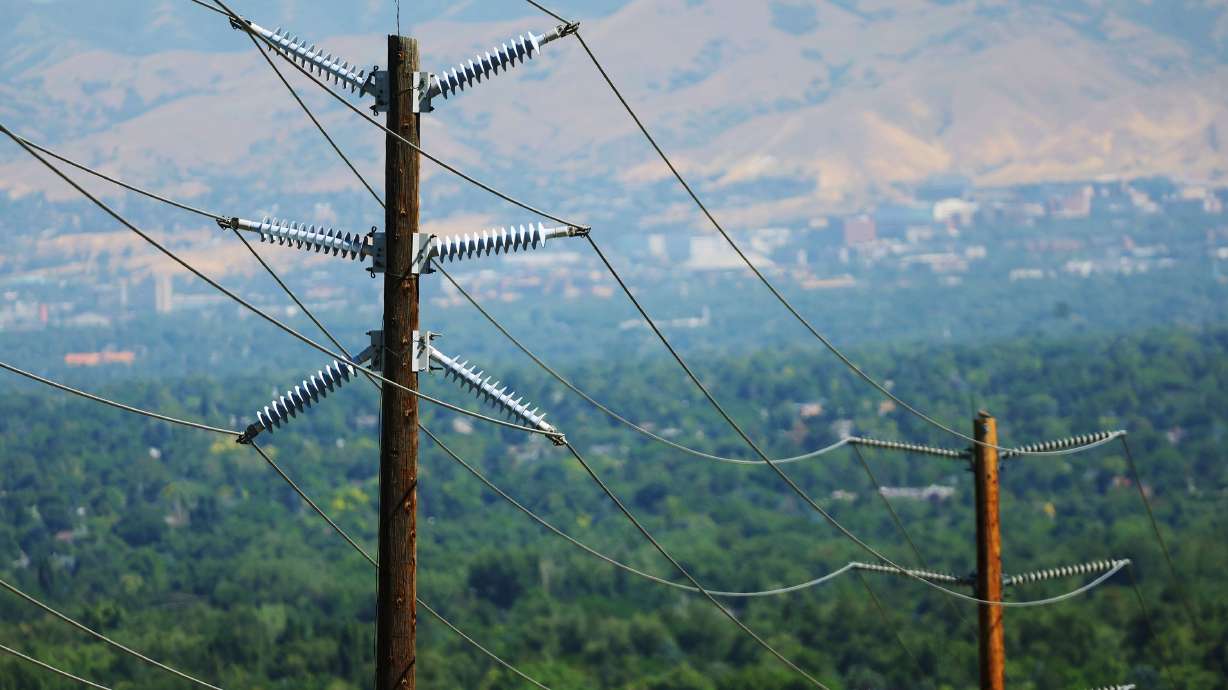Estimated read time: 4-5 minutes
This archived news story is available only for your personal, non-commercial use. Information in the story may be outdated or superseded by additional information. Reading or replaying the story in its archived form does not constitute a republication of the story.
- Rep. John Curtis and Senate President Stuart Adams are advocating for nuclear energy in Utah.
- They emphasize the need for advanced nuclear technology to meet energy demands and reduce emissions.
- Utah is identified as a "first mover" state in nuclear technology deployment initiatives.
SALT LAKE CITY — A couple of top Utah political leaders said it is not a matter of if but when the deployment of advanced nuclear technology happens in Utah to meet burgeoning energy needs.
Rep. John Curtis, R-Utah, and state Senate President Stuart Adams, R-Layton, both stressed at a Wednesday conference in Park City that the state has to aggressively pursue next-generation nuclear technology if it is going to cut carbon emissions and meet energy demands.
"We want this to come to Utah," Curtis said. "We want to be a big part of this. We're ready for nuclear facilities here in our state, and we have communities who would welcome that. We have a lot of people in traditional energy sources that this would be very beneficial to them, and we're excited about that."
The Frontiers Project meeting was a daylong event hosted by the Idaho National Laboratory, the premier U.S. Department of Energy laboratory focusing on nuclear energy and located just a couple of hours north of Salt Lake City.
It was co-hosted by the Atlantic Council, a nonpartisan global policy organization and the University of Utah's Energy Futures Research Engine.
"There is no way to get to our energy future of what this world needs without — not just a little nuclear — but without a lot of nuclear. We're not talking about dozens of nuclear facilities. We're talking about hundreds of nuclear facilities," Curtis emphasized.
The Frontiers Project is an initiative of the Idaho National Laboratory established in 2021 to foster and support eight states in creating economic development plans focused on deployment of advanced nuclear technology.
Utah has been identified as one of four "first mover" states that have developed strong partnerships with the Idaho National Laboratory to get to that deployment stage. The initiative for first movers also includes other states in the West, including Idaho and Wyoming. Alaska is on the list as well.
Curtis said it is just a matter of getting over the hurdle.
"The reality of it is we're struggling right now, not from an innovative standpoint, not from a research standpoint, but from a practicality standpoint of actually getting this done, and Washington needs your help," he told the crowd.
In July, Congress passed the ADVANCE Act with an eye toward streamlining the process of licensing new nuclear technology such as small modular reactors and microreactors. The act passed with bipartisan support, but it was too late for the failed Carbon Free Power Project.
That project to site a small modular reactor at the Idaho laboratory was pursued by the Utah Associated Municipal Power Systems to deliver nuclear power as a base load energy source to some Utah municipalities. The effort went on for nearly a decade and achieved some success with the reactors' design by NuScale getting approved by the U.S. Nuclear Regulatory Commission.
But despite investments of over $100 million, the cost became too much for participating entities and the project was canceled, Curtis said.
"The weight of it (was) just too big, and they pulled out."
Curtis challenged company representatives at the conference to bring their ideas to Washington "and figure out how we get this done."
Utah's new emphasis on energy
Earlier this month, Utah Gov. Spencer Cox announced a new initiative called "Operation Gigawatt" in which the state plans to double its energy production in the next 10 years.
He emphasized there is a looming energy crisis and Utah needs to take steps now to avert possible shortages.
At the conference on Wednesday, Adams said Utah needs to wholeheartedly embrace advanced nuclear technologies and get them deployed and continue to be diverse in its energy portfolio.
"We want to establish Utah as an expert here for energy innovation, for not only the nation, but we want to be the world leader. And to do that, nuclear is going to be a big part of it," he said.
Adams said he is particularly excited about microreactors because of their size, versatility and application for industrial uses and to feed the grid.
"I want some of the first ones in Utah, and I think we can, and they aren't big, and we know that, but they can be mass produced in a very controlled environment, and they ought to be able to be permitted as they hit the ground," he said. "I want them in Utah, and I want them next year. So let's get going. Utah has some of the lowest energy prices in the entire nation and I want to keep that going."
Utah, he added, has been a net energy exporter, meaning it produces more energy than it consumes. That has changed.
"That scares me to death, and we need to fix that," he said. "Energy is going to drive our economy. It drives what we do, both economically and in national security. In Utah, education used to be No. 1 for me. Water was for a period of time because we're in the middle of the drought. But right now, there's no bigger priority for me as a Senate president — I believe it's a national priority, (our) national security — than energy production."










